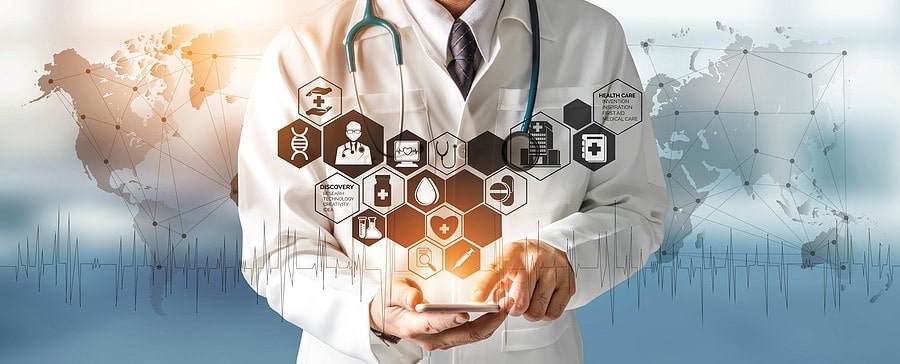
The novelty of COVID-19 presents an opportunity for real-world evidence (RWE) to be leveraged to understand the pandemic before us and the long-term effect it could have on patients, public health, and, ultimately, the economy. To put it simply, RWE is derived from real-world data (RWD) – electronic health records, insurance claims, patient registries, lab results – and analyzed in a way that can provide actionable insights on how a certain treatment option might work for a patient. The U.S. Food and Drug Administration (FDA) released its framework for its real-world evidence program in December 2018, and since then RWE has grown in significance due to its ability to provide a better understanding of a disease and its impact on more generalized populations beyond those represented in clinical trials. Now, as we navigate the new realities brought on by the pandemic, RWE could help guide us through.
The first confirmed case of COVID-19 in the United States was recorded in January, and by March the virus had gained global significance and shuttered the U.S. economy. At the outset of the pandemic, there was no standard of care or uniform disease presentation, and there was no way to discern if an infected patient would recover or need aggressive medical intervention. Seven months after the March peak in Massachusetts, we still cannot rely too heavily on randomized clinical trial data because there are too many questions that are left unanswered about a large swath of patients. Because of this, it remains critical to observe the patient population, access data in real-time, and learn from those who have been infected.
What makes RWE an effective tool in fighting this pandemic is its power to potentially predict and illuminate how the virus is likely to behave in different populations, or how certain patient types will react. By utilizing this information, and with the ability to look at a broad patient base, healthcare providers can better inform their treatment plans and mitigate risks of complications caused by the virus. This is especially critical for those diverse populations that have been disproportionally affected by the novel coronavirus and who are often underrepresented in clinical trials. Seeking to catalyze the use of RWE, Aetion and the FDA signed a research collaboration agreement in May to advance the understanding of COVID-19. Through this effort, “Aetion and the FDA will identify and analyze fit-for-purpose data sources to characterize COVID-19 patient populations and their medication use, identify risk factors for COVID-19-related complications, and contribute to the scientific evaluation of potential interventions.” This initiative is a steppingstone for industry and government, as well as academia, healthcare providers, and other stakeholders to learn from COVID-19 patients who are receiving care. It’s also an opportunity to better ascertain the nuances of this virus in real-time as life sciences companies strive to deliver a COVID-19 vaccine at unprecedented speed.
Currently, there are several companies that have COVID-19 vaccine candidates in Phase III clinical trials with the potential to have sufficient data for emergency use authorization by early 2021 or even by the end of this year. If that data shows a vaccine is extremely effective, a trial could be stopped based on interim data analysis. The speed at which these life sciences companies have strived to deliver breakthrough diagnostics, treatments, and vaccines for COVID-19 truly demonstrates the value of this industry in solving unmet medical needs. It also paves the way for RWE to evaluate the efficacy of these vaccines in the long-term given the record timelines at which they are coming down the pipeline. According to Jennifer B. Christian, PharmD, MPH, Ph.D., and Matthew W. Reynolds, Ph.D. in The American Journal of Managed Care, RWE will be “valuable in uncovering any adverse events that may be too rare to show up in the clinical trials used for approval” as we study the long-term impact of vaccines in real-world populations. To truly ensure we are aggressively combating this virus through treatments and vaccines, we must mobilize the use of RWE and harness its potential as a prevailing tool to understand COVID-19 and mitigate its long-term effects.
We are living through a historic pandemic. As of writing this, 222,000 patients have died of COVID-19 and over 8.38 million have been infected. The strength of the life sciences industry will solve this crisis, but before vaccines achieve widespread availability, a potential hundreds of thousands of people will be exposed to or contract COVID-19. As such, we need the brightest minds from all sectors of the industry – from academia, government, and industry – to come together and advance RWE so we can prescribe the right treatments, properly intervene, and truly understand this virus. The novel coronavirus is bringing to the forefront all the ways we need to be using RWE, and while it is science that will lead us out of the pandemic, RWE will help us learn from this era, arm ourselves with proper understanding of this virus, and better prepare for any healthcare crises that may emerge in the future.